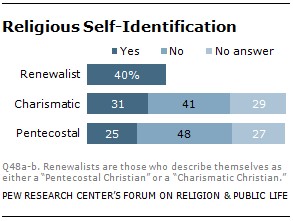What Is An Evangelical Christian? Exploring this question uncovers a vibrant branch of Protestant Christianity. At WHAT.EDU.VN, we aim to provide accessible answers to complex questions, offering clarity on evangelical beliefs and practices. Explore the evangelical movement, delving into its core tenets and diverse expressions with WHAT.EDU.VN.
1. Understanding Evangelical Christianity: Core Beliefs
Evangelical Christianity is a diverse movement within Protestantism, characterized by a few core beliefs. These beliefs shape the identity and practices of evangelical Christians around the world.
- Biblicism: A high regard for the Bible as the inspired and authoritative word of God. Evangelicals believe the Bible is the ultimate source of truth and guidance for life.
- Conversionism: An emphasis on the “born-again” experience as essential for salvation. Evangelicals believe that individuals must personally accept Jesus Christ as their Lord and Savior.
- Activism: A commitment to sharing the Gospel and making a difference in the world. Evangelicals believe that they are called to spread the Christian message and to work for social justice.
- Crucicentrism: A focus on the atoning death and resurrection of Jesus Christ as central to salvation. Evangelicals believe that Jesus’ sacrifice on the cross is the only way to reconcile with God.
These four characteristics, often referred to as the “Bebbington quadrilateral,” provide a framework for understanding the core commitments of evangelical Christians. However, it’s important to recognize the diversity within the evangelical movement, with variations in theology, worship style, and social engagement. Do you have more questions about evangelical beliefs? Ask them on WHAT.EDU.VN and get answers fast.
2. The “Born-Again” Experience: A Defining Characteristic
The “born-again” experience is a central tenet of evangelical Christianity. It signifies a personal encounter with God that leads to a transformed life.
2.1. What Does It Mean to Be “Born-Again”?
Being “born-again” refers to a spiritual rebirth, a new beginning in one’s relationship with God. It involves:
- Recognition of Sin: Acknowledging one’s separation from God due to sin.
- Repentance: Turning away from sin and seeking forgiveness.
- Faith in Christ: Trusting in Jesus Christ as the savior who died for our sins.
- New Life: Experiencing a transformation in heart, mind, and behavior as a result of God’s grace.
2.2. Age of Conversion
The survey data indicates that for many evangelical leaders, the “born-again” experience occurs at a relatively young age, with an average age of 17. Around 86% experienced their rebirth before turning 30, and 67% before the age of 20.
3. Who Identifies as Evangelical?
Identifying as an evangelical Christian involves more than just adhering to a set of beliefs. It also encompasses a sense of belonging to a community and a shared identity.
3.1. Denominational Affiliations
While evangelicalism is not a denomination itself, it is a movement that spans across various Protestant denominations, including:
- Baptist
- Methodist
- Presbyterian
- Assemblies of God
- Non-denominational churches
3.2. Charismatic and Pentecostal Influences
Within evangelicalism, there is a significant segment that identifies as charismatic or Pentecostal. These Christians emphasize the gifts of the Holy Spirit, such as speaking in tongues, divine healing, and prophecy. Younger evangelical leaders are more likely to identify as Pentecostal or charismatic Christians. According to the survey, 25% of leaders identify as Pentecostal and 31% as charismatic Christians. Have a burning question about religion? Get clarity on WHAT.EDU.VN for free.
3.3. Global Variations
Pentecostalism is especially prevalent in the Global South, with leaders in sub-Saharan Africa particularly likely to identify with this movement. The data shows 33% identify as Pentecostals from the Global South, compared to 14% from the Global North.
4. Essential Practices of an Evangelical Christian
Evangelical Christianity is not just about believing certain doctrines; it also involves living out one’s faith in practical ways.
4.1. Following Christ’s Teachings
A near-unanimous 97% of Lausanne leaders agree that following the teachings of Christ in personal and family life is essential for being a good evangelical Christian.
4.2. Evangelism: Sharing the Gospel
Sharing the Gospel and leading others to Christ is considered a core practice, with 94% of leaders agreeing on its importance.
4.3. Helping the Poor and Needy
Social action and compassion are also integral to evangelicalism. Approximately 73% of leaders consider working to help the poor and needy as essential, while 24% say it’s important but not essential.
4.4. Tithing: Financial Stewardship
Financial stewardship through tithing is considered essential by 58% of leaders, with 32% viewing it as important but not essential.
4.5. Taking a Stand on Social and Political Issues
Taking a public stand on social and political issues that conflict with moral and biblical principles is deemed essential by 56% of the leaders. Additionally, 49% find it essential to take a public stand on issues that could limit the freedom of evangelicals to practice their faith.
4.6. Environmental Stewardship
Protecting the natural environment is considered essential by 36%, while 47% see it as important but not essential.
5. Compatible and Incompatible Beliefs
Evangelical Christians generally hold certain beliefs and practices as compatible or incompatible with their faith.
5.1. Compatible Beliefs and Practices
Believing in miracles today (94%) and divine healing (93%) are widely accepted among Lausanne leaders. Speaking in tongues is considered compatible by 70%, though a sizeable minority (26%) disagrees.
5.2. Incompatible Beliefs and Practices
Mixing Christianity with other faiths (syncretism) is widely rejected. Engaging in yoga as a spiritual practice (92%), believing in astrology (97%), and believing in reincarnation (96%) are considered incompatible. Also, 95% of leaders reject the belief that Jesus Christ is not the only path to salvation.
5.3. Alcohol Consumption: A Divisive Issue
The compatibility of alcohol consumption with evangelicalism is a contentious issue, with roughly half (52%) considering it incompatible and 42% viewing it as compatible. Regional backgrounds influence these beliefs significantly.
6. Core Theological Beliefs
Certain theological beliefs are central to evangelical Christianity.
6.1. The Uniqueness of Christianity
A vast majority (96%) of Lausanne leaders believe that Christianity is the one, true faith leading to eternal life. This contrasts sharply with the views of rank-and-file evangelicals in the U.S. and sub-Saharan Africa, where opinions are more divided.
6.2. The Authority of the Bible
An overwhelming majority (98%) believe that the Bible is the Word of God. However, opinions are split on whether everything in the Bible should be taken literally (50%) or not (48%).
6.3. Creation and Evolution
Nearly half (47%) believe that humans and other living things have existed in their present form since the beginning of time, while 41% believe that a supreme being guided the evolutionary process. Only 3% believe in evolution solely due to natural processes.
6.4. Eschatology: Beliefs about the End Times
A slight majority (52%) believe that Christ will either probably (44%) or definitely (8%) return in their lifetimes. Additionally, 61% believe in the Rapture of the Church.
7. Common Practices and Behaviors
Evangelical leaders tend to engage in specific practices regularly.
7.1. Church Attendance
The vast majority (89%) participate in religious services at least once a week, with 68% attending more than once a week.
7.2. Prayer and Scripture Study
About 75% participate in prayer or scripture study groups weekly.
7.3. Religious Media Consumption
Religious radio or TV programs are less frequently consumed, with about a third (37%) doing so weekly.
7.4. Answered Prayers
Nearly all (94%) report having received a direct answer to a specific prayer request.
8. Renewalist Experiences
Many evangelical leaders report having experienced or witnessed practices associated with renewalist groups.
8.1. Common Experiences
Reports include speaking or praying in tongues (47%), witnessing exorcisms (57%), receiving direct revelations from God (61%), and experiencing faith healings (76%). Additionally, 40% have given or interpreted prophecy.
8.2. The Prosperity Gospel
An overwhelming majority rejects the prosperity gospel, with 90% disagreeing that God always grants wealth and good health to believers with deep faith.
9. Navigating Your Questions About Faith
Understanding evangelical Christianity involves exploring its core beliefs, practices, and diverse expressions. Whether you’re curious about the “born-again” experience, the role of the Bible, or the engagement with social issues, there’s always more to discover.
9.1. Seeking Answers and Guidance
Finding reliable answers to your questions about faith can sometimes be challenging. You might not know where to turn or who to ask. Perhaps you’re concerned about the cost of seeking guidance or simply want a quick and easy way to explore your questions.
9.2. WHAT.EDU.VN: Your Free Resource for Answers
At WHAT.EDU.VN, we understand these challenges. That’s why we offer a free platform where you can ask any question and receive helpful, informative answers. Our goal is to provide clarity and understanding, making it easier for you to explore your faith and find the answers you seek.
9.3. Connect with a Community
WHAT.EDU.VN is more than just a question-and-answer site. It’s a community where you can connect with others, share your insights, and learn from diverse perspectives. Whether you’re a student, a professional, or simply someone who’s curious about the world, you’ll find a welcoming space to explore your questions and expand your knowledge.
Ready to explore further? Don’t hesitate to reach out.
Address: 888 Question City Plaza, Seattle, WA 98101, United States
WhatsApp: +1 (206) 555-7890
Website: WHAT.EDU.VN
Have a question about evangelical Christianity or any other topic? Visit WHAT.EDU.VN today and get the answers you’re looking for – it’s free and easy Come ask your questions on what.edu.vn today and get the answers you seek


